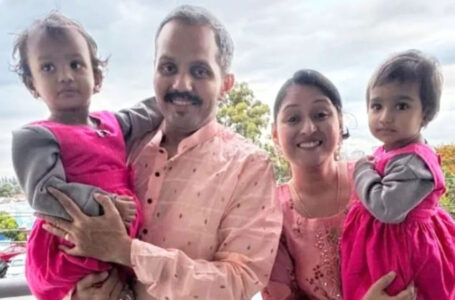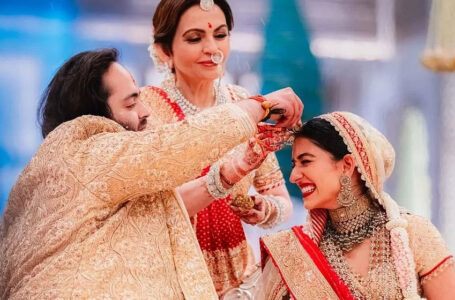Live-in relationships in India

“I have been living in with my boyfriend for over 3 years now, and we are loving it so far. Given our erratic schedules, marriage is something that’s simply not on the cards right now,” says Deepa from Mumbai, who is working as an assistant manager in a reputed hotel chain.
Although quite commonplace in the West, the idea of live-in relationships is still vying for greater acceptance and recognition in India. Are live-in relationships simply a passing fad or something that’s here to stay in the country?
Given the galloping increase in the number of live-in relationships in India, it seems unlikely that it is something that’s going to fade away. Even though most live-in relationships in India are mushrooming in metropolitan cities, more and more people from across India are beginning to find live-in relationships more convenient than marriages.
“Both of us are working right now and would like to understand each other better before we take any major decision about tying the knot. Marriage is far more complicated than living in, although most people think it’s the other way round,” says Deepak from Gurgaon, who has been living in with a female friend for over six months now.
What is it that makes the idea of living in so attractive to the new generation? Delhi-based sociologist Uma Saluja believes that men and women today are far too busy to get into a married relationship, something which they perceive to be far too great a commitment.
“Essentially, live-in relationships offer most of the benefits that you get from a marriage, without having to deal with the complications that marriages involve. It gives youngsters today a kind of flexibility in their personal lives which would otherwise not have been possible,” says Uma.
Rishi Jindal, a Mumbai-based psychologist, could not agree more. “People today are much more sensitive to the hassles of marriage than they were, and the idea of living together with your loved one without getting into a married relationship is something that is apparently quite attractive,” he says.
In spite of the lure that living-in holds, the practice is yet to catch on as well as it has in the West.
“The culture of India holds the institution of marriage as something quite sacred, and something that is quite obviously expected from most people. So much so that any idea of living together without getting married is looked down upon by a lot of people,” says Uma.
In smaller towns and suburbs of India, live-in relationships are something almost unheard of, and something alien. Even in metropolitan cities, not everyone finds live-in relationships to be the ideal thing for couples to engage in.
“My family is very conservative and I know that they would never allow such a thing, no matter how good the guy is. Although I would not mind living together with my boyfriend, there is this huge pressure from my family to settle down,” says Nidhi, a call centre employee working in Indore.
“I’m torn between getting married to my boyfriend and continuing with my job. I know I will not be allowed to work once I get married. I really wish I could live in with my boyfriend,” Nidhi added.
An online poll conducted by a leading news daily found that only 65% of the respondents disagreed with live-in relationships. Jindal believes that the poll result should be taken with a grain of salt, as they are likely to be skewed.
“Only people who strongly feel about live-in relationships are likely to have responded, which is not really a very good indicator about what most people feel. Besides, tech-savvy youngsters are more likely to be interested in online polls than the rest of the population,” he revealed.
It might seem that all is well with live-in relationships. Maybe it’s just a matter of time before live-in relationships get endorsed by most people. Or is it?
Sameer Mistry, a Bangalore-based psychiatrist, begs to differ. “I cannot recall how many times I’ve come across women who were on the verge of suicide simply because they were abused by their partners whom they were living in with,” he said.
“In fact, a recent report put out by a leading daily also reported that several women have been driven to suicide or major depression because the live-in relationships that they were in did not really work out the way they had imagined,” he added.
Rohini Maheshwari, a 24-year old working woman in Pune, no longer finds live-in relationships as alluring as she used to. “I was living together with this boyfriend of mine for over 9 months. As time rolled by, we began having fights more and more often, and he would often return home drunk and at odd times. I cannot tell you how much I suffered. I’m happy I called off the relationship before it was too late,” she says.
Rohini says that she is now seeking a partner to settle down with, and has told her parents to start looking for a match for her.
“Although I don’t really support the idea of a lifelong live-in relationship, I don’t mind living in with my partner for a few years before we get married. It is only when you live together with someone for some time do you find out if that person is compatible with you or not,” says Nikita, a student in her third year of college from Nagpur.
Indeed, a lot of people we spoke to said that they are open to the idea of living together with their girlfriend or boyfriend before tying the knot.
“I got married to my girlfriend after we lived in for about a year and a half. We really enjoyed our company and thought it ideal to settle down together,” says Irfan from Hyderabad.
“I hail from a conservative Muslim family and there was certainly some tension in my family when I decided to live-in with my girlfriend. But now that we are married, everything is alright,” he confirmed.
For many, a live-in relationship is an alternative to marriage. For others, it is simply a test drive to check for compatibility before settling down. Nevertheless, live-in relationships are growing, and the trend does not seem to be showing any signs of letting up.
(Names of all the respondents have been changed to protect their identities)







